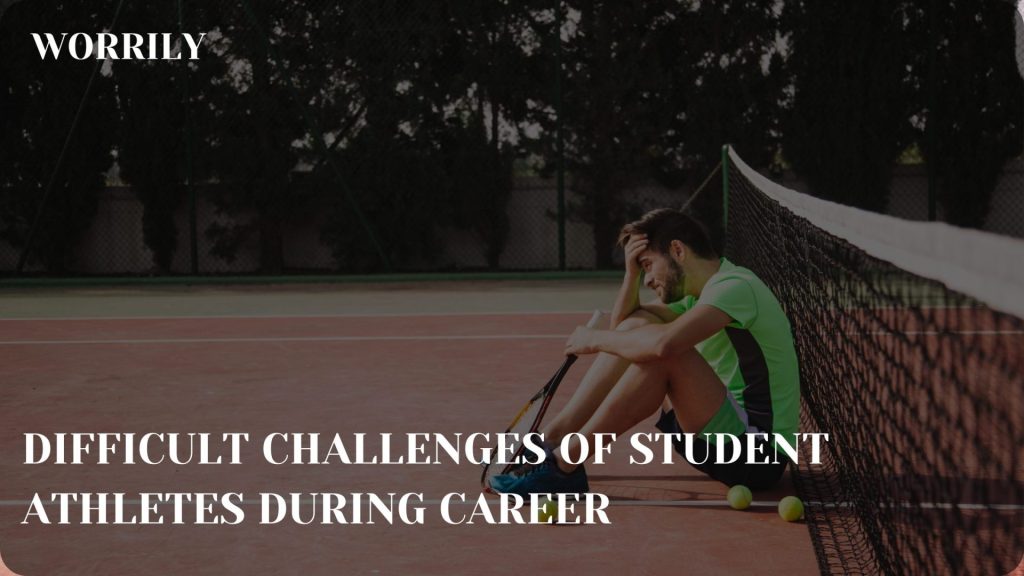Challenges of student athletes are different in 2024 and beyond and they go through different issues during their career especially they have mental health issues such as ainxiety and they dont explain it to their friends and family.
These challenges can be solved effectively with proper guidance and support from the coaches and parents which will allow the students to perform good not only in sports but in studies too so this post will describe everything the challenges of student athletes and how trainers identity those challenges
How Trainers Identify Student Athlete Challenges
-
Observational Techniques:
Trainers use their keen observation skills to notice changes in an athlete’s performance, behavior, and physical health. These techniques help in identifying any potential issues early on.
-
Feedback from Coaches
Regular feedback from coaches and provides valuable insights into the athlete’s performance, attitude, and any challenges they may be facing, both on and off the field.
-
Regular Assessments
Conducting physical and psychological assessments helps in identifying health issues, stress levels, and overall well-being of student-athletes.
-
Communication:
Building a strong relationship and open communication lines with student-athletes encourages them to share their challenges and concerns more freely.
Time Management
-
Balancing Training and Academic Schedules:
Finding a balance between training sessions and academic responsibilities is crucial for student-athletes to succeed in both areas.
-
Effective Use of Downtime:
Learning to use downtime effectively for rest, recovery, and productive activities such as studying or planning.
-
Goal Setting Priority:
Setting clear priorities and goals helps student-athletes focus on what’s important and manage their time efficiently.
-
Tools and Strategies for Time Management:
Utilizing tools like planners, apps, and time management strategies to stay organized and on track with their commitments.
Academic Challenges
-
Academic Requirements:
Ensuring that student-athletes meet the academic requirements to remain eligible for their sport.
-
Support Systems and Resources:
Access to tutoring, academic advisors, and study groups can provide the necessary support to help student-athletes succeed academically.
-
Balancing Academic and Athletic Commitments:
Managing the demands of both academics and athletics requires careful planning and time management.
-
Impact on Academic Performance:
Understanding how athletic commitments can affect academic performance and finding ways to mitigate any negative impacts.
Social Life
-
Maintaining Relationships:
Finding time to build and maintain relationships with friends, family, and teammates.
-
Social Isolation and Integration:
Addressing feelings of social isolation that can arise due to the demanding schedule of student-athletes and promoting integration into the broader campus community.
-
Impact of Athletic Commitments on Social Activities
Balancing social activities with athletic commitments to ensure a well-rounded college experience.
-
Support Networks and Peer Groups:
Leveraging support networks and peer groups to provide emotional and social support.
Financial Concerns
-
Scholarships and Financial Aid:
Supporting students in terms of scholarships and financial aid to support their education and athletic career.
-
Cost of Participation and Equipment:
Managing the financial burden of participation costs, including equipment, travel, and other expenses.
-
Balancing Part-Time Work and Athletics:
Finding ways to manage part-time work while maintaining athletic and academic commitments.
-
Financial Literacy and Planning:
Gaining financial literacy to manage personal finances effectively and plan for the future.
Transition to Life After College Sports
-
Psychological and Emotional Support:
Addressing the psychological and emotional adjustments required when transitioning out of college sports.
-
Career Transition Programs:
Participating in career transition programs designed to help student-athletes transition to the workforce.
-
Maintaining Health and Fitness Post-Competition:
Continuing to maintain health and fitness after their competitive athletic career has ended.
-
Alumni Networks and Continued Support:
Leveraging alumni networks and continued support systems to assist with the transition.
Stereotypes and Expectations
-
Dealing with Public Perceptions:
Managing and facing public perceptions and stereotypes associated with being a student-athlete.
-
Internal and External Pressures:
Addressing the internal and external pressures to perform both academically and athletically.
-
Impact on Mental Health:
Understanding how stereotypes and expectations can impact mental health and finding ways to mitigate these effects.
-
Challenging and Redefining Stereotypes:
Working to challenge and redefine stereotypes associated with student-athletes.
CONCLUSION:
These are the main issues and challenges of student athletes which they face in their life.These challenges can only be resolved with proper communication between the trainer and the athletes.
Trainers should have the ability to analyze changes in performance of athletes and gather feedback through regular assessment. By focusing on holistic approach, trainers ensure that student-athletes succeed in all aspects of their lives, leading to a more fulfilling and successful experience.
For all the studen facing challenges and anxiety in their performance it is recommended that they should consult online therapy and a doctor who will resolve their issues
